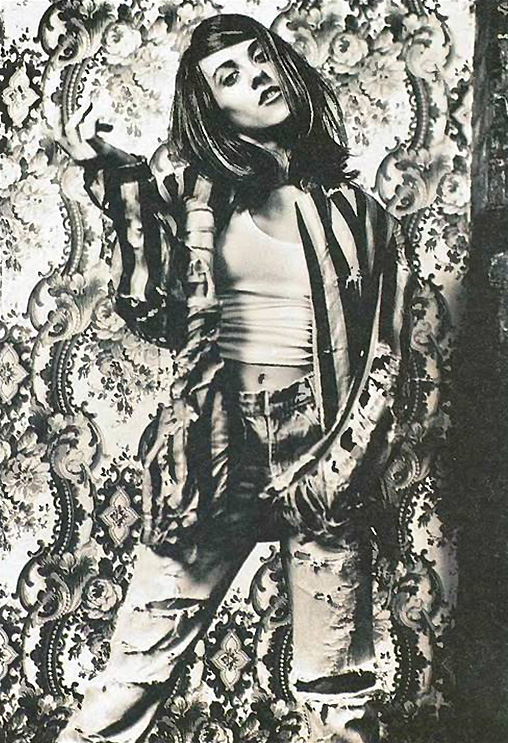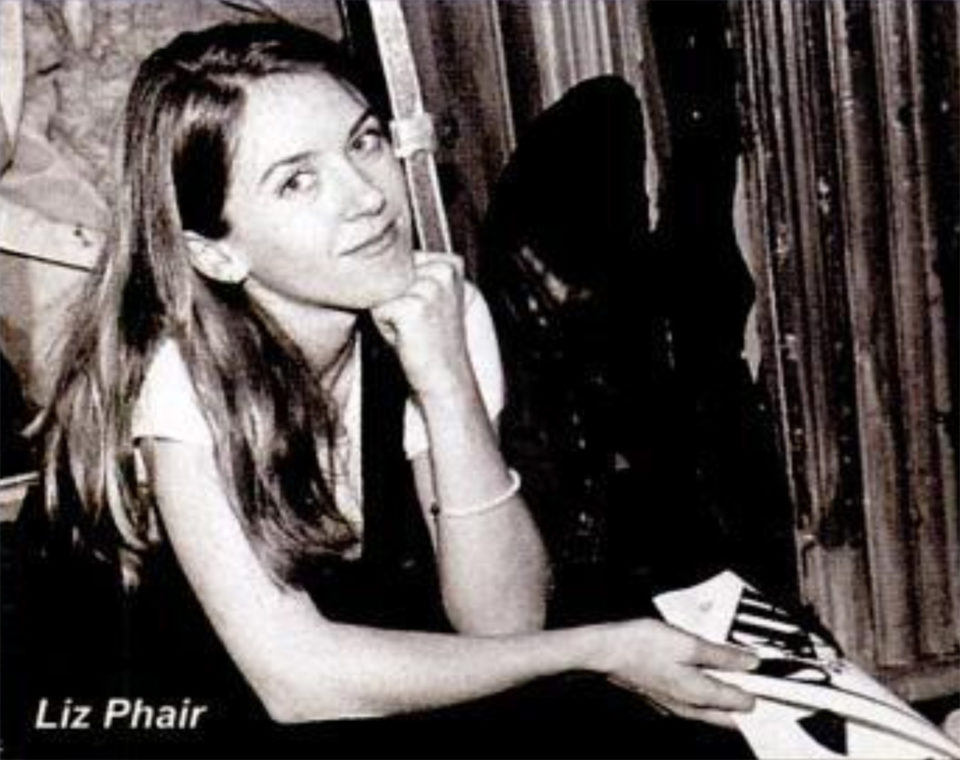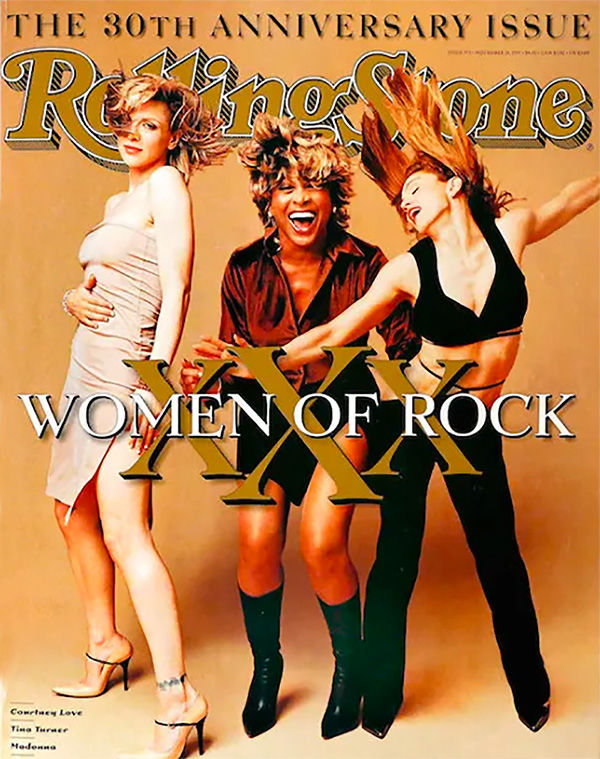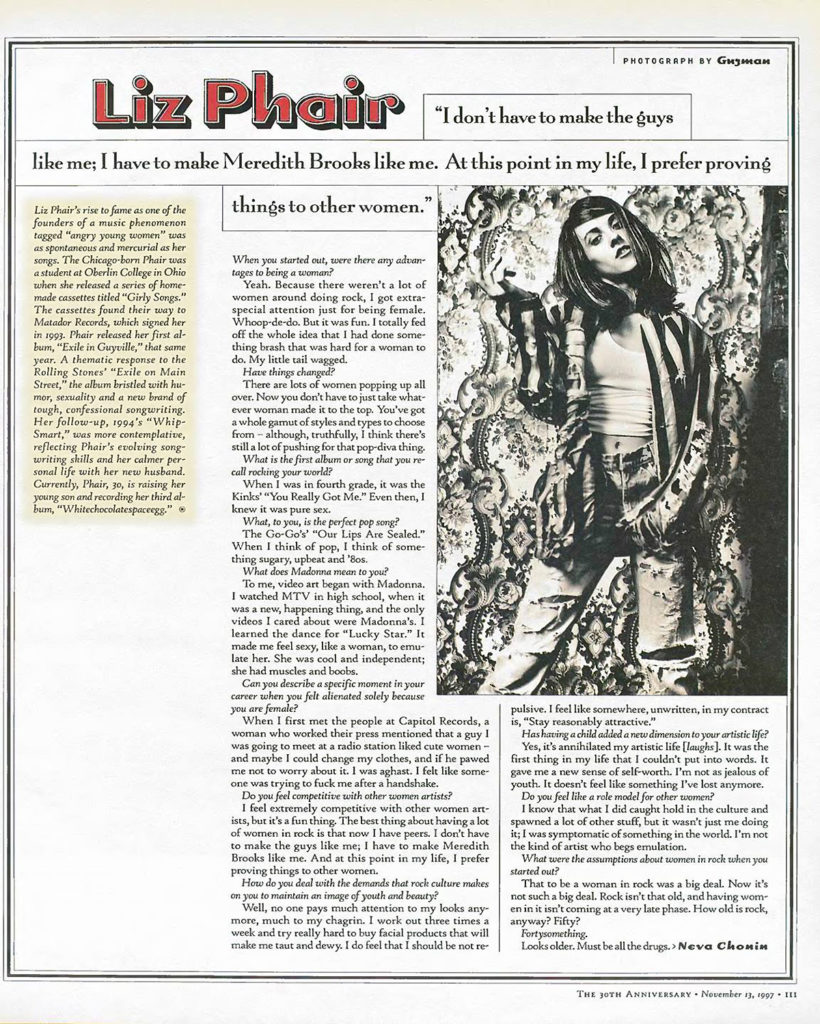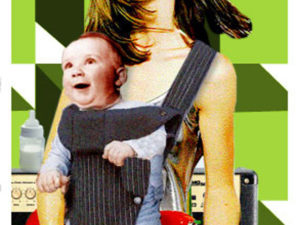By Neva Chonin
Rolling Stone #773, November 13, 1997
Liz Phair’s rise to fame as one of the founders of a music phenomenon tagged “angry young women” was as spontaneous and mercurial as her songs. The Chicago-born Phair was a student at Oberlin College in Ohio when she released a series of homemade cassettes titled “Girly Songs”. The cassettes found their way to Matador Records, which signed her in 1993. Phair released her first album, “Exile in Guyville”, that same year. A thematic response to the Rolling Stones’ “Exile on Main Street”, the album bristled with humor, sexuality and a new brand of tough, confessional songwriting. Her follow-up, 1994’s “Whip-Smart”, was more contemplative, reflecting Phair’s evolving songwriting skills and her calmer personal life with her new husband. Currently, Phair, 30, is raising her young son and recording her third album, “Whitechocolatespaceegg”.
When you started out, were there any advantages to being a woman?
Yeah. Because there weren’t a lot of women doing rock, I got extra-special attention just for being female. Whoop-de-do. But it was fun. I totally fed off the whole idea that I had done something brash that was hard for a woman to do. My little tail wagged.
Have things changed?
There are lots of women popping up all over. Now you don’t have to just take whatever woman made it to the top. You’ve got a whole gamut of styles and types to choose from — although, truthfully, I think there’s still a lot of pushing for that pop-diva thing.
What is the first album or song that you recall rocking your world?
When I was in fourth grade, it was the Kinks’ “You Really Got Me”. Even then, I knew it was pure sex.
What, to you, is the perfect pop song?
The Go-Go’s “Our Lips Are Sealed”. When I think of pop, I think of something sugary, upbeat and ’80s.
What does Madonna mean to you?
To me, video art began with Madonna. I watched MTV in high school, when it was a new, happening thing, and the only videos I cared about were Madonna’s. I learned the dance for “Lucky Star”. It made me feel sexy, like a woman, to emulate her. She was cool and independent; she had muscles and boobs.
Can you describe a specific moment in your career when you felt alienated solely because you are female?
When I first met the people at Capitol Records, a woman who worked their press mentioned that a guy I was going to meet at a radio station liked cute women — and maybe I could change my clothes, and if he pawed me not to worry about it. I was aghast. I felt like someone was trying to fuck me after a handshake.
Do you feel competitive with other women artists?
I feel extremely competitive with other women artists, but it’s a fun thing. The best thing about having a lot of women in rock is that now I have peers. I don’t have to make guys like me; I have to make Meredith Brooks like me. And at this point in my life, I prefer proving things to other women.
How do you deal with the demands that rock culture makes on you to maintain an image of youth and beauty?
Well, no one pays much attention to my looks anymore, much to my chagrin. I work out three times a week and try really hard to buy facial products that will make me taut and dewy. I do feel that I should be not repulsive. I feel like somewhere, unwritten, in my contract is, “Stay reasonably attractive.”
Has having a child added a new dimension in your artistic life?
Yes, it’s annihilated my artistic life [laughs]. It was the first thing in my life that I couldn’t put into words. It gave me a new sense of self-worth. I’m not as jealous of youth. It doesn’t feel like something I’ve lost anymore.
Do you feel like a role model for other women?
I know that what I did caught hold in the culture and spawned a lot of other stuff, but it wasn’t just me doing it; I was symptomatic of something in the world. I’m not the kind of artist who begs emulation.
What were the assumptions about women in rock when you started out?
That to be a woman in rock was a big deal. Now it’s not such a big deal. Rock isn’t that old, and having women in it isn’t coming at a very late phase. How old is rock, anyway? Fifty?
Fortysomething.
Looks older. Must be all the drugs.
Featured Image: Liz Phair (Photo by Guzman)
